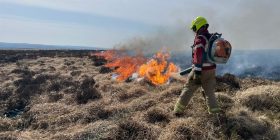How Can Students Ensure Their Safety in a Small Town

In the collective imagination, small towns often evoke images of close-knit communities, pastoral landscapes, and slower-paced lives. The small population and familiar faces can lead to a sense of comfort and belonging. However, beneath this serene exterior, safety concerns, though perhaps less publicized than in big cities, still exist.
It’s a fallacy to assume that small towns are invariably safer. Just like in urban areas, there can be pockets of danger or unexpected risks. Moreover, students, especially those from larger cities or foreign places, can sometimes stand out, inadvertently making themselves targets. While the intention is not to foster unnecessary fear, awareness is a crucial component of safety.
In this modern era, information is key. Many students often search online for resources ranging from local safety tips to a trustworthy college essay writing service. Harnessing this digital access can be an initial step in understanding and preparing for life in a smaller town.
Understand the Town’s Landscape
Knowledge is power, and this is particularly true when ensuring personal safety. Students should take the time to research local crime statistics and trends. This can give them a clearer picture of what areas might be more prone to certain types of incidents, such as theft or assault.
Walking or driving around during the day can help familiarize students with the neighborhoods, main streets, and landmarks. It’s also a chance to gauge general feelings of safety in different areas. For instance, places that are poorly lit at night or have limited foot traffic might be spots to avoid after dark.
Proactively speaking to local residents or school advisors about any areas of concern can also be insightful. They might have firsthand experiences or knowledge that could guide a student in making safe choices about where to live, study, or socialize.
Building Strong Local Connections
Being an active participant in the community can significantly enhance a student’s safety. By getting to know local residents, there’s a higher likelihood of being looked out for. Forming bonds with neighbors, attending community events, or merely being a regular at a local café can embed a student within the fabric of the town.
Moreover, local business owners and longtime residents often possess a wealth of knowledge about the town’s history, dynamics, and potential areas of concern. Their insights can serve as invaluable guides to newcomers.
Community groups or student associations can be another avenue for building connections. These groups often serve dual purposes: they not only foster a sense of belonging but also keep members informed about local news, safety updates, or concerns that might be relevant to students.
Safe Housing and Accommodations
In a small town, the allure of quaint, secluded accommodations might be tempting. However, students must prioritize their safety when choosing where to live. Housing located in well-lit areas with a fair amount of foot or vehicular traffic can be a safer bet. This ensures that there are always eyes on the street, a concept that urban planners argue can deter potential crime.
When evaluating potential places to live, one should consider the property’s security features. Adequate locks on doors and windows, a secure front entrance, and even the presence of surveillance cameras can contribute to a safer living environment. Additionally, some students find solace in shared accommodations. Living with roommates not only can help mitigate costs but also offers an added layer of security. With multiple occupants, it’s more likely someone is home at various times of the day, and there’s the comfort of not being alone during the night.
Safe Transportation Habits
Navigating a small town, especially after dark, requires thought and preparation. Though the distances might be shorter and the streets less crowded, potential dangers can still lurk. One fundamental safety tip is to avoid traveling alone at night. Whether walking, cycling, or driving, having a companion can deter potential threats and provide assistance if needed.
A “buddy system” can be an excellent strategy. By coordinating with friends or classmates, one can ensure that there’s always someone to accompany them, especially during late hours. When walking or cycling, it’s crucial to stay alert. While the serenity of a small town might invite the opportunity to lose oneself in thought or music, keeping distractions to a minimum ensures that one remains aware of their surroundings.
If students use transportation options or rideshares, it’s vital to inform someone close about their whereabouts, the service they are using, and their expected time of arrival. This added layer of communication ensures someone is always in the loop about their movements.
Personal Safety Practices
While fostering relationships and practicing safe transportation habits are crucial, personal safety practices offer immediate, tangible layers of protection. Investing in personal safety tools, such as alarms or pepper sprays, can provide a sense of security. These tools can deter potential attackers and draw attention in times of distress.
Emergency contact numbers shouldn’t just be saved in one’s phone; they should be easily accessible, maybe even memorized. In a situation where one feels threatened, every second counts, and scrambling to find a number can waste precious time.
Another pivotal aspect of personal safety revolves around self-awareness. This includes recognizing potentially dangerous situations and trusting one’s instincts. If something feels off or uncomfortable, it’s essential to prioritize personal well-being over social obligations or curiosities. This also extends to personal consumption habits. While enjoying the occasional drink with friends might be a regular part of student life, excessive alcohol or substance use can impair judgment and reduce one’s ability to recognize or react to threats.
Digital Safety and Privacy
In our interconnected world, the digital sphere can sometimes be as dangerous as the physical one. Students, with their lives deeply entrenched in technology, must prioritize their online safety. This begins with being cautious about sharing personal information, including location, plans, or routines. Such details, when in the wrong hands, can make one vulnerable to various threats.
A few key digital safety tips include:
- Utilizing strong, unique passwords for different online accounts.
- Regularly checking and adjusting the privacy settings on social media platforms.
- Being wary of unsolicited communication or requests from unfamiliar online sources.
While it’s natural to form new friendships in a university setting, it’s essential to exercise caution with new online connections, especially if they lack mutual connections or come off as overly inquisitive about personal details.
Conclusion
Students traveling the path of education often seek support, sometimes in the form of the best dissertation writing services and safe environments to foster growth. Safety in both digital and physical planes are integral parts of a safe and secure life in a small town. However it should always be remembered that no place can ever be completely free of risks.
Proactive measures and ongoing awareness are key in meeting these challenges head-on. By strengthening connections, prioritizing personal safety measures, and protecting digital privacy online, students can enjoy all that small towns offer while remaining safe from threats that might otherwise exist. Adopting such practices not only ensure individual wellbeing but contribute to making a safer community overall.
Spotted something? Got a story? Send a Facebook Message | A direct message on Twitter | Email: [email protected]
Latest News








